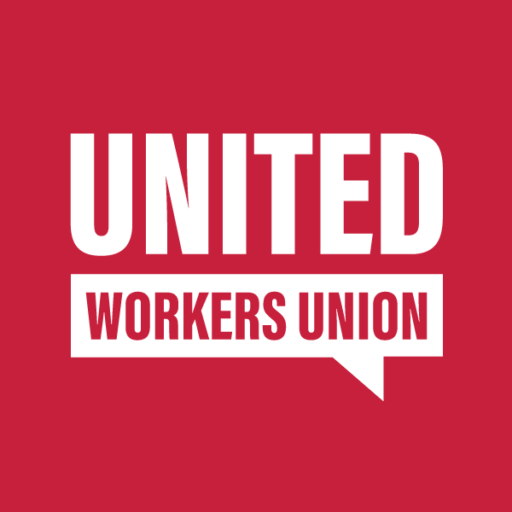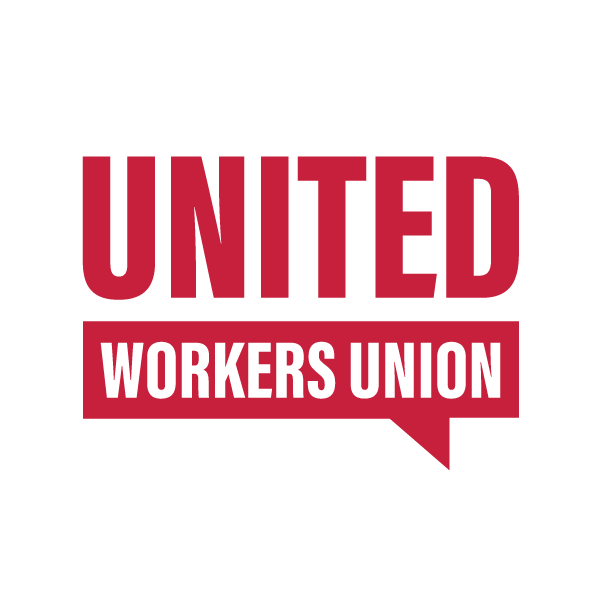Aged care workers have presented 16 recommendations to the Aged Care Royal Commission, as the Commission commences the last week of hearings for 2019. The wide-ranging workforce reforms will achieve a best practice aged care system for workers and the elderly Australians in their care.
The United Workers Union submission levels heavy criticism at the Morrison Government for their historical and ongoing irresponsible, unaccountable approach to funding for aged care.
Chronic underfunding and the resulting systemic workforce issues have been the major theme to emerge in the Aged Care Royal Commission. The United Workers Union workforce submission recommends reforms to impose minimum staffing levels, overhaul funding, introduce industry bargaining and qualification requirements.
Recommendations presented to the Royal Commission today include:
RECOMMENDATION: the Federal Government must introduce targeted funding for the aged care workforce to ensure funding goes directly to improving the wages and working conditions of aged care workers
RECOMMENDATION: the Federal Government must undertake a cost of care study as a matter of priority to determine the true cost of providing quality care, specifically including workforce costs
RECOMMENDATION: the Federal Government must respond to concerns with individualised funding in home care
RECOMMENDATION: in addition to targeted workforce funding, the Federal Government must ensure decent working conditions, including appropriate wages, job security, minimum hours and training
RECOMMENDATION: that industry bargaining is introduced to rectify the limitations of a conventional enterprise bargaining system in the aged care sector
RECOMMENDATION: that a minimum qualification at the Certificate III level be introduced for the aged care workforce
RECOMMENDATION: aged care providers are required to demonstrate the provision of ongoing training
RECOMMENDATION: in consultation with the sector, the Federal Government develop a mandated minimum staffing model for aged care
RECOMMENDATION: the Government develop a pre-employment screening and registration scheme for the non-clinical aged care workforce through a regulatory body.
Carolyn Smith, United Workers Union National Director of Aged Care says, “United Workers Union welcomes the opportunity to make a submission on behalf of our members to the Royal Commission into Aged Care. Listening to workers is the key to reforming our aged care system. The current aged care funding system must be overhauled and workers know this better than anyone. Our members have firsthand experience of how service quality has been compromised by fiscal constraints.
“The submission presents a clear case to the Royal Commission on how workforce issues are underpinned by chronic underfunding of the sector. Poor workforce outcomes can be directly linked to inadequate and out-dated funding mechanisms. High workloads, no time to care, short shifts, inadequate hours, and high rates of part time or casual employment are all symptoms of a poorly-funded system.
“Unless the Morrison Government commits to increased funding now, their continued inaction will lead to further devaluing of the work in this sector. The Government is well aware that underfunding is the root of many of the workforce issues plaguing the sector. Yet, they continue to do nothing, less than 1% of the funding announcements in the last 12 months have been workforce purposed. The Royal Commission has identified workforce as an area it will be examining thoroughly in 2020, and it’s time the Aged Care Minister Richard Colbeck started paying attention.
“The sector desperately needs more funding to address workforce issues and it needs this funding now. Anything other than immediate action by Government is a serious disservice to all Australians.”
FURTHER DETAIL INCLUDED IN THE SUBMISSION:
UNDERFUNDING IN THE WORKPLACE: Members have reported using catheters for longer than the average five to six weeks, stretched out beyond eight weeks in some cases. We have heard reports of members being forced to dry people with paper towels because the actual towels were too expensive to launder off-site. Gloves are being withheld because providers have gone over budget. People are being asked to wash bandages from VRE and MRSA patients with their bare hands in warm water. Incontinence pads are being rationed. This is just a small sample of a whole range of disturbing examples our membership has reported.
WAGES: Wages in aged care are currently at least 15% undervalued. As there is no requirement for funding to flow automatically into wages, whilst the good intentions of some employers are acknowledged, previous injections of funds to the industry have not resulted in adequate and fair improvements to wages and working conditions. Failing to specifically target funds for aged care workforce initiatives such as wages invariably means they will not be used for that purpose. There have been no significant attempts to address wages in aged care by the Federal Government.
HOME CARE FUNDING: Individualised funding in home care has had an impact on care delivery. Since the introduction of individualised funding, members have reported a noticeable reduction in care hours, and a reduction or complete removal of paid team meetings and training. Team meetings are a vital opportunity for home care workers who otherwise work in isolation to come together to learn, share information and access peer support. In order to successfully manage individualised funding, providers have had to expand their focus so that the budget and financial transactions of a client are managed alongside their care provision.
QUALIFICATIONS: United Workers Union believes that a requirement for a minimum qualification at the Certificate III level should be introduced. Mandating a minimum qualification assures that workers enter the sector with a level of knowledge and skill upon which to build and that may be transferred and recognised across the industry.
MINIMUM STAFFING: United Workers Union proposes a model that can average across residents and encompasses all of the aspects of care rather than a strict numerical ratio of staff to residents. One option is a staffing model based on care hours per resident, encompassing all aspects of care including physical, social and emotional. The model would prescribe a minimum staffing level allowing providers of aged care to exceed this minimum where they wish to.
REGISTRATION: United Workers Union supports the introduction of a pre-employment screening and registration scheme for the non-clinical aged care workforce through a regulatory body that is appropriate to the skills, roles and professional expectations of this cohort of workers. Registration for aged care workers must be separate from existing clinical registration for health professionals.

